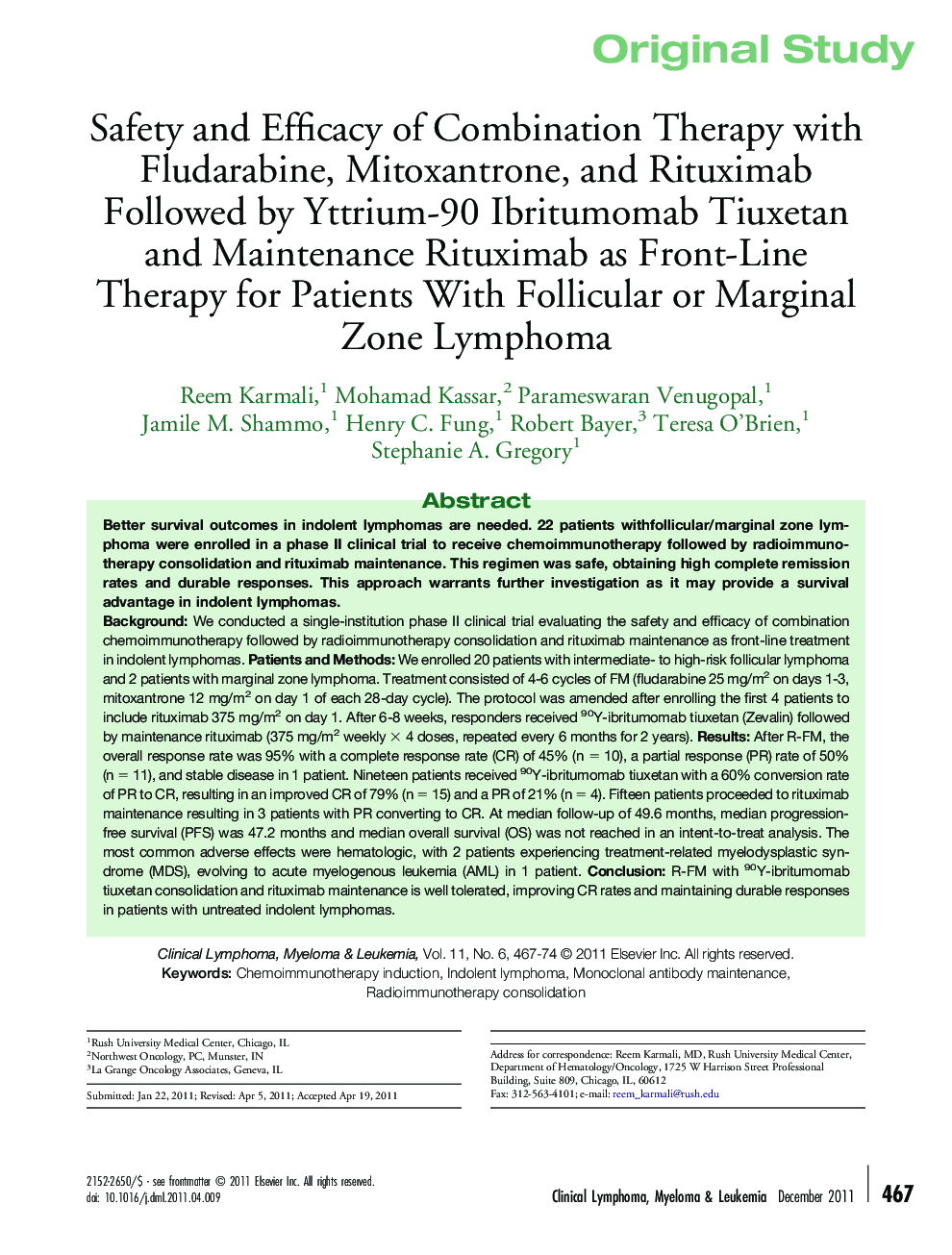| Article ID | Journal | Published Year | Pages | File Type |
|---|---|---|---|---|
| 2755232 | Clinical Lymphoma Myeloma and Leukemia | 2011 | 8 Pages |
BackgroundWe conducted a single-institution phase II clinical trial evaluating the safety and efficacy of combination chemoimmunotherapy followed by radioimmunotherapy consolidation and rituximab maintenance as front-line treatment in indolent lymphomas.Patients and MethodsWe enrolled 20 patients with intermediate- to high-risk follicular lymphoma and 2 patients with marginal zone lymphoma. Treatment consisted of 4-6 cycles of FM (fludarabine 25 mg/m2 on days 1-3, mitoxantrone 12 mg/m2 on day 1 of each 28-day cycle). The protocol was amended after enrolling the first 4 patients to include rituximab 375 mg/m2 on day 1. After 6-8 weeks, responders received 90Y-ibritumomab tiuxetan (Zevalin) followed by maintenance rituximab (375 mg/m2 weekly × 4 doses, repeated every 6 months for 2 years).ResultsAfter R-FM, the overall response rate was 95% with a complete response rate (CR) of 45% (n = 10), a partial response (PR) rate of 50% (n = 11), and stable disease in 1 patient. Nineteen patients received 90Y-ibritumomab tiuxetan with a 60% conversion rate of PR to CR, resulting in an improved CR of 79% (n = 15) and a PR of 21% (n = 4). Fifteen patients proceeded to rituximab maintenance resulting in 3 patients with PR converting to CR. At median follow-up of 49.6 months, median progression-free survival (PFS) was 47.2 months and median overall survival (OS) was not reached in an intent-to-treat analysis. The most common adverse effects were hematologic, with 2 patients experiencing treatment-related myelodysplastic syndrome (MDS), evolving to acute myelogenous leukemia (AML) in 1 patient.ConclusionR-FM with 90Y-ibritumomab tiuxetan consolidation and rituximab maintenance is well tolerated, improving CR rates and maintaining durable responses in patients with untreated indolent lymphomas.
